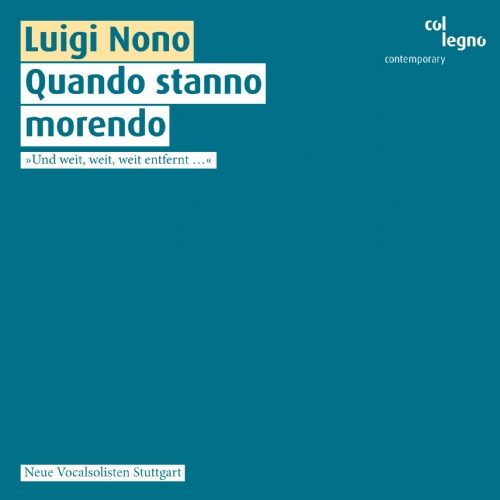Luigi Nono
Often, it is events from private life that lead to the creation of works. »Sarà dolce tacere« (1960), for example, was composed for the 40th birthday of Nono’s (former) teacher and close friend, Bruno Maderna; and »Ha venido«, also composed in 1960, was written for the first birthday of his daughter. In contrast, »Djamila Boupachà« (1962), »Dónde estás, hermano« (1982), and »Quando stanno morendo« (1982) reflect the politically involved, engaged global citizen Nono.
It is remarkable how he infuses each of the works with specific sonic individuality while ultimately drawing on similar motifs: »Whether it is the monody of Djamila Boupachà or the multifaceted interactions between singing voices and instruments in Quando stanno morendo, which are further transformed and spatially moved through live electronics–as defined by the composer: This music possesses a distinct, musical eloquence. It ranges from the night-blackness of the second part of Quando stanno morendo to the spring enchantment of Ha venido, the gentle–in Sarà dolce tacere–to the painfully compelling call for another silence, for other, light-filled days in Djamila Boupachà.«
(Jürg Stenzl)
01_Canciones para Silvia (1960)
02_Dónde estás, hermano (1982)
03_Djamila Boupachà (1962)
04_Sarà dolce tacere (1960)
05–13_Quando stanno morendo. Diario polacco n. 2 (1982)
duration : 1:08:06
Pirmin Grehl, flute
Erik Borgir, cello
conductor: Manfred Schreier
a co-production of col legno, DeutschlandRadio, and Musik der Jahrhunderte
producer: Wulf Weinmann
live electronics: Digital Masters Stuttgart
booklet text: Jürg Stenzl
recorded from 26th to 28th February 2002 in the broadcast hall of Deutschlandfunk

